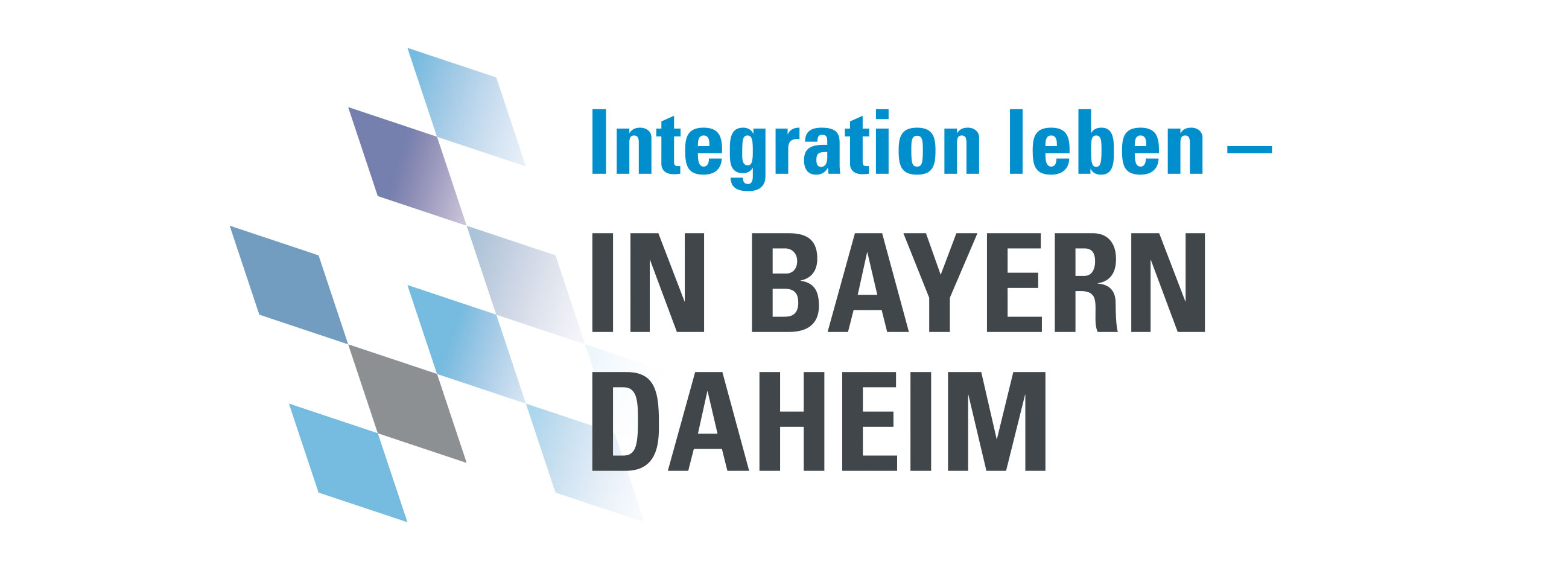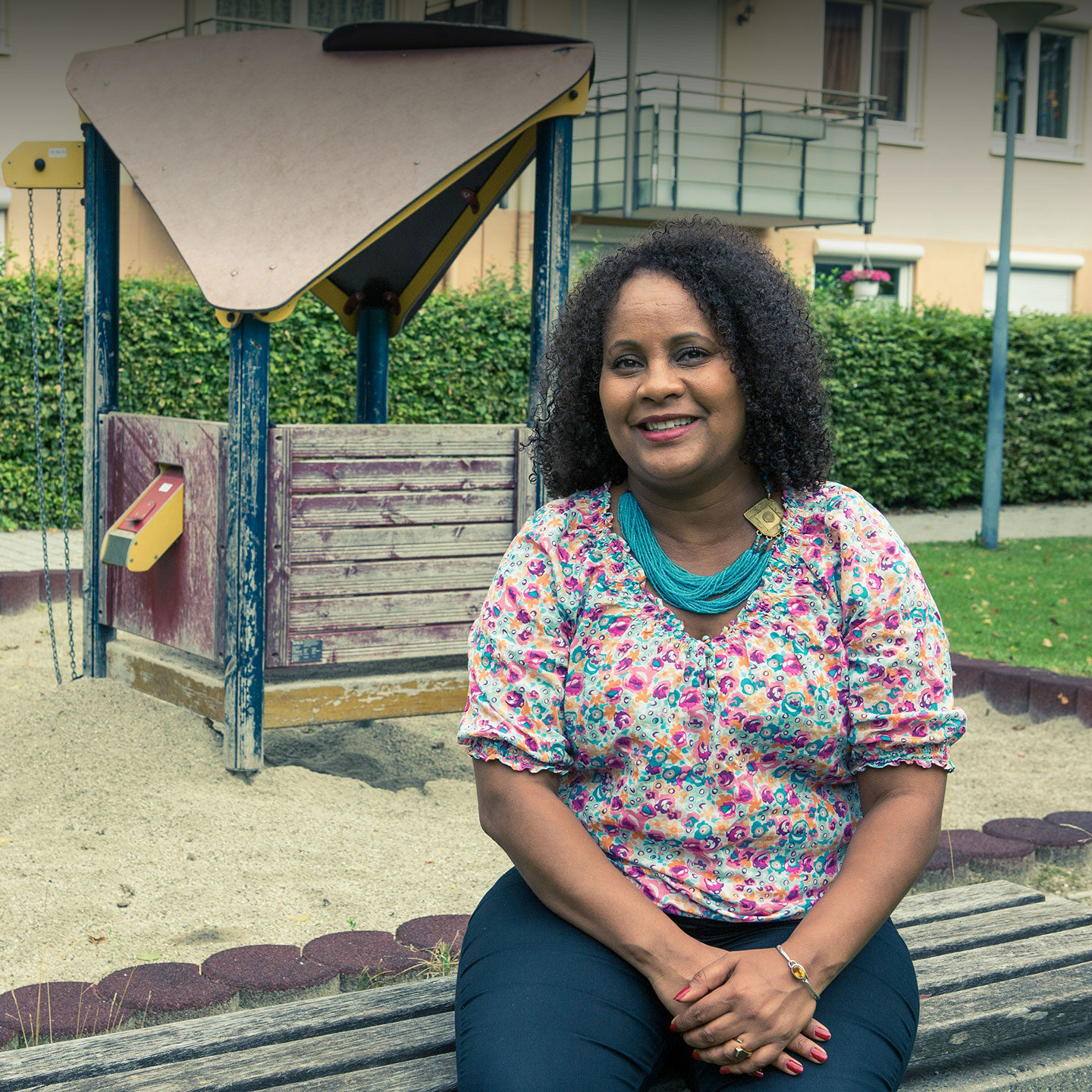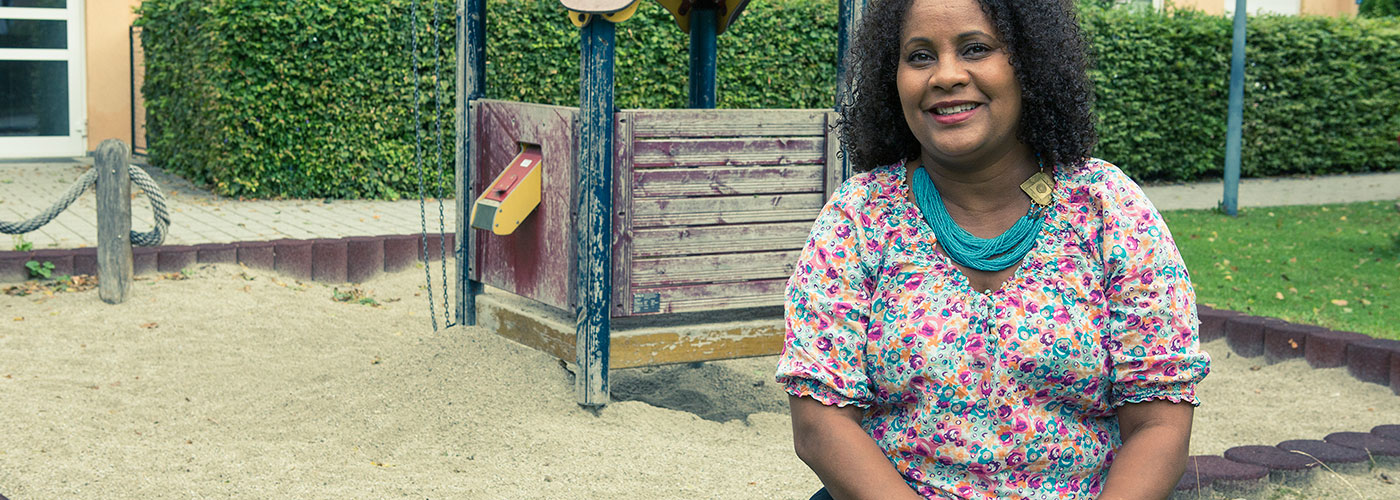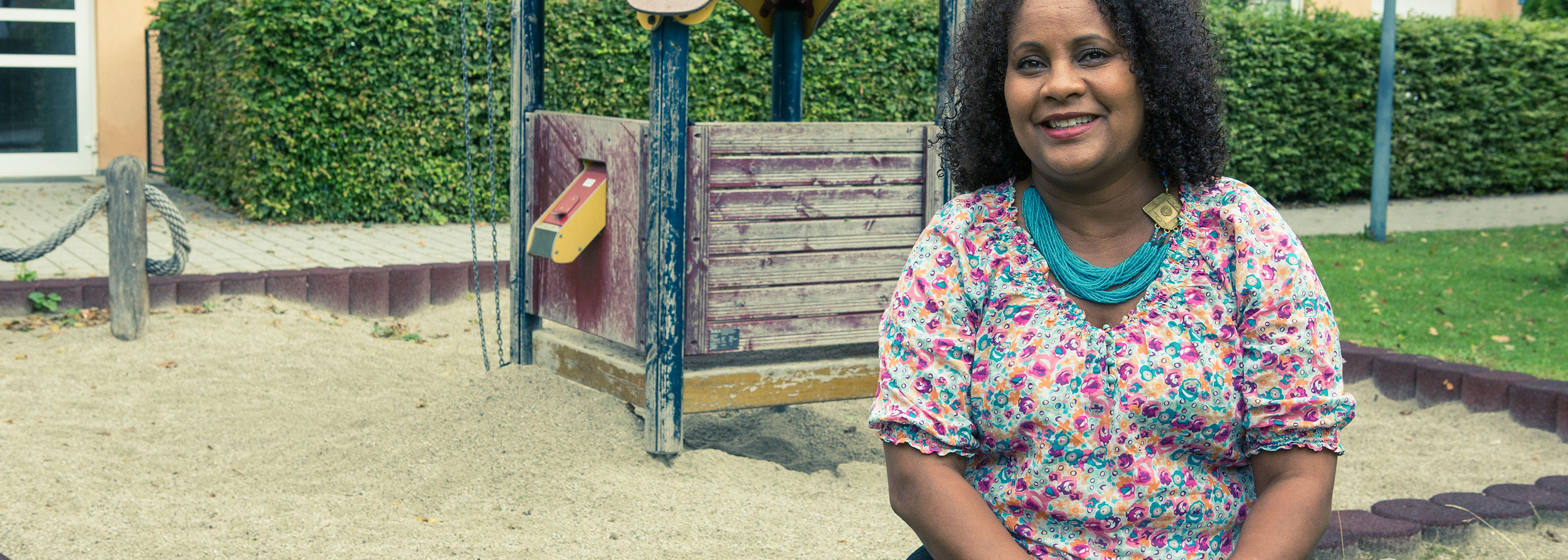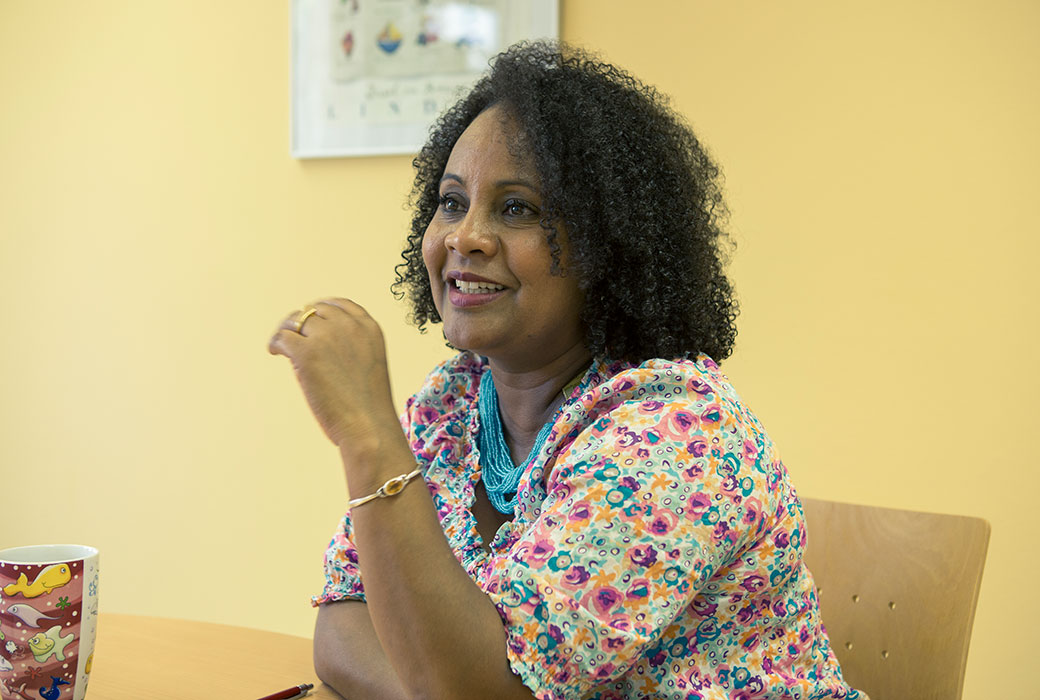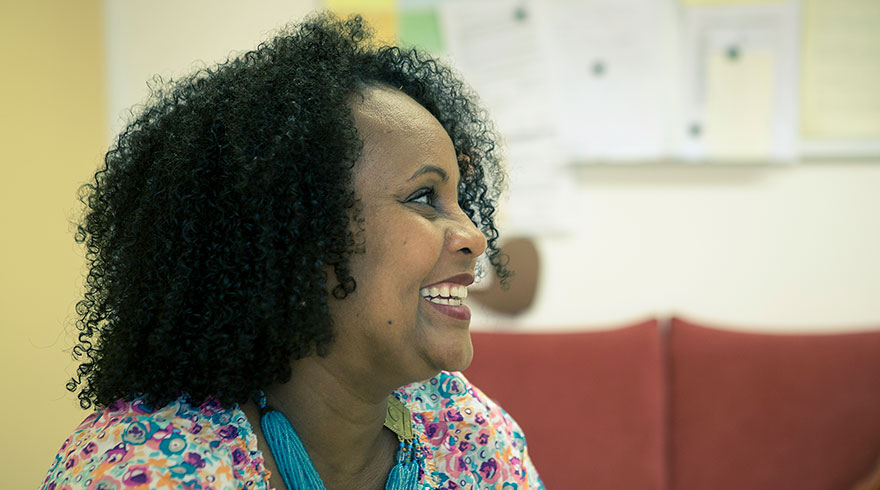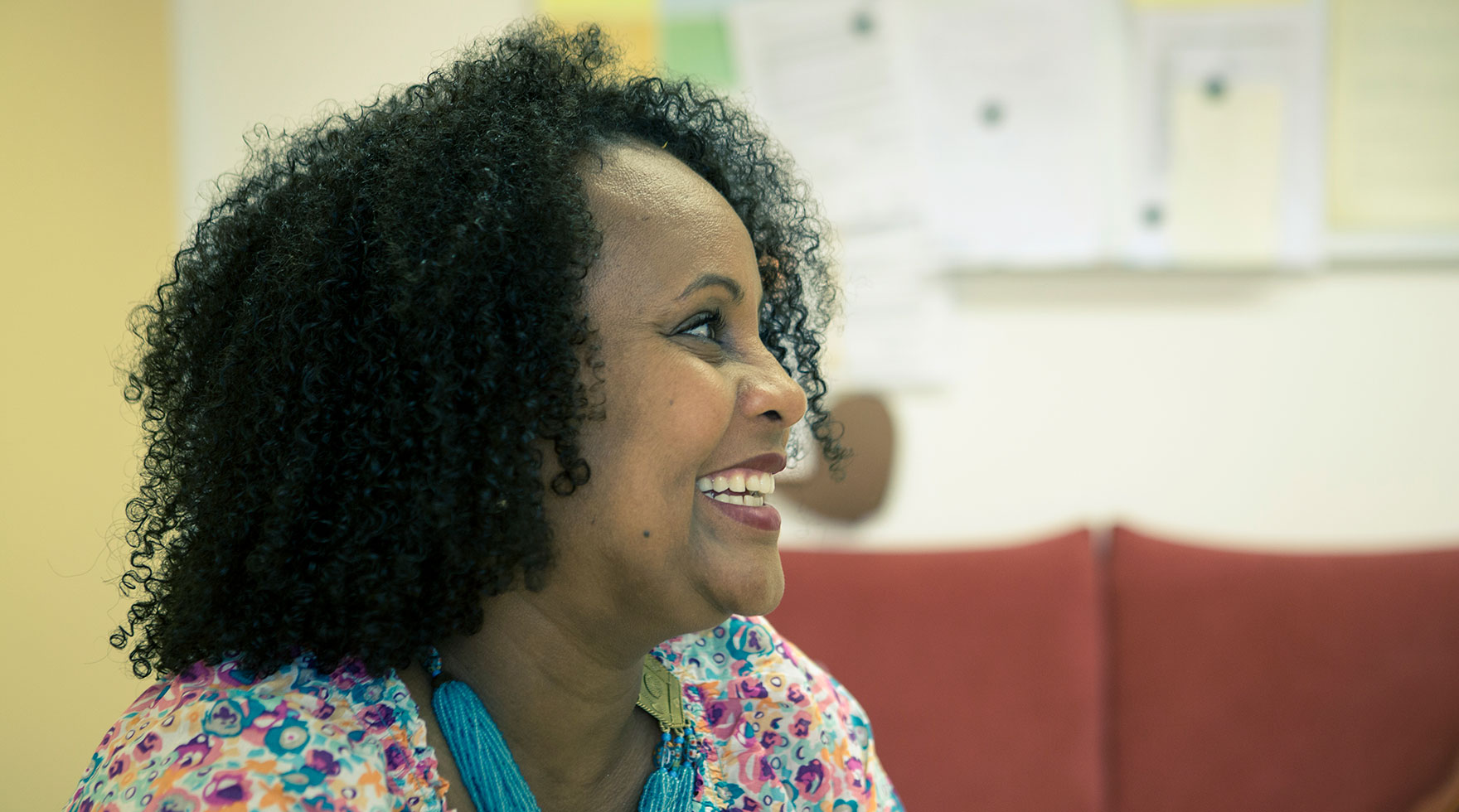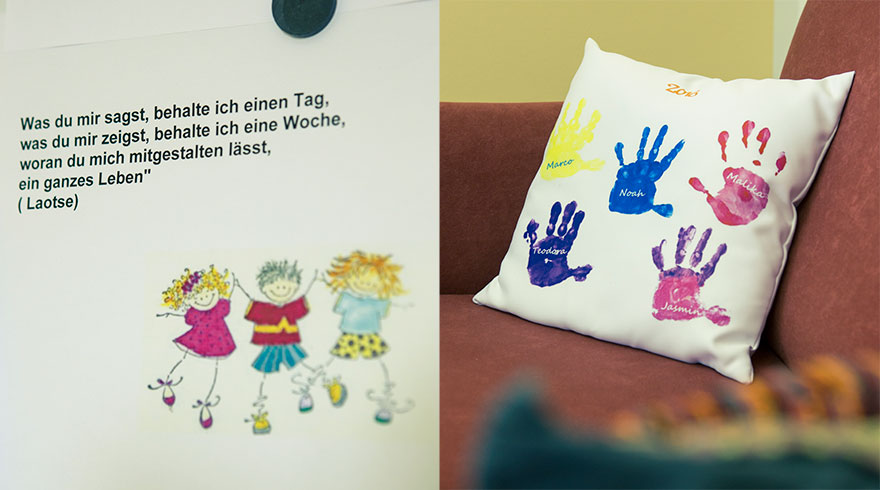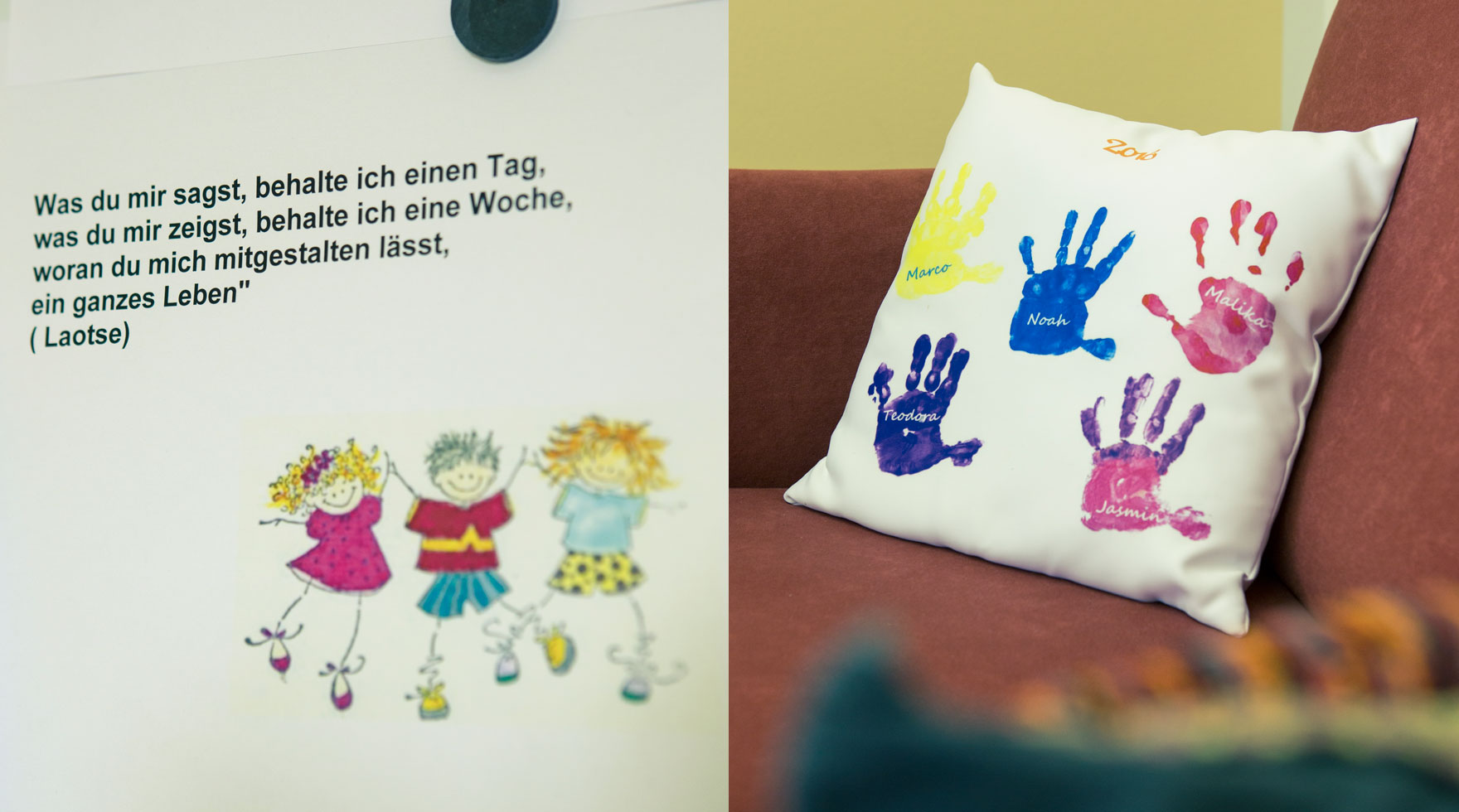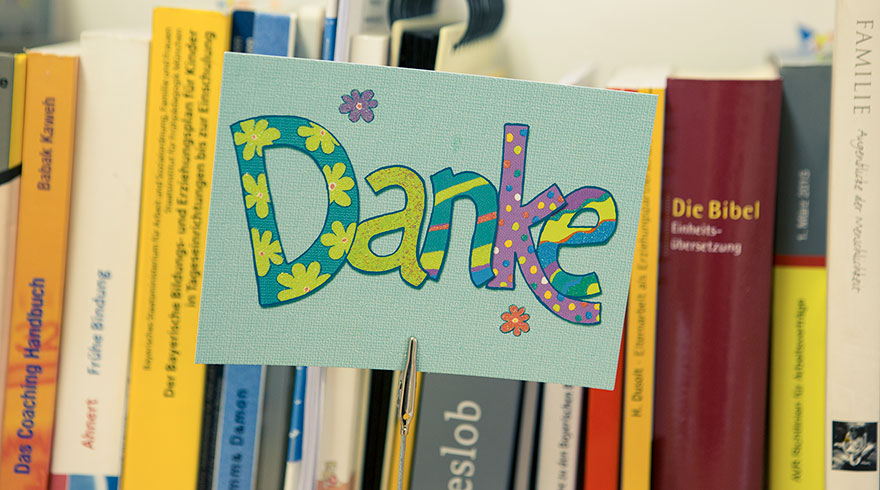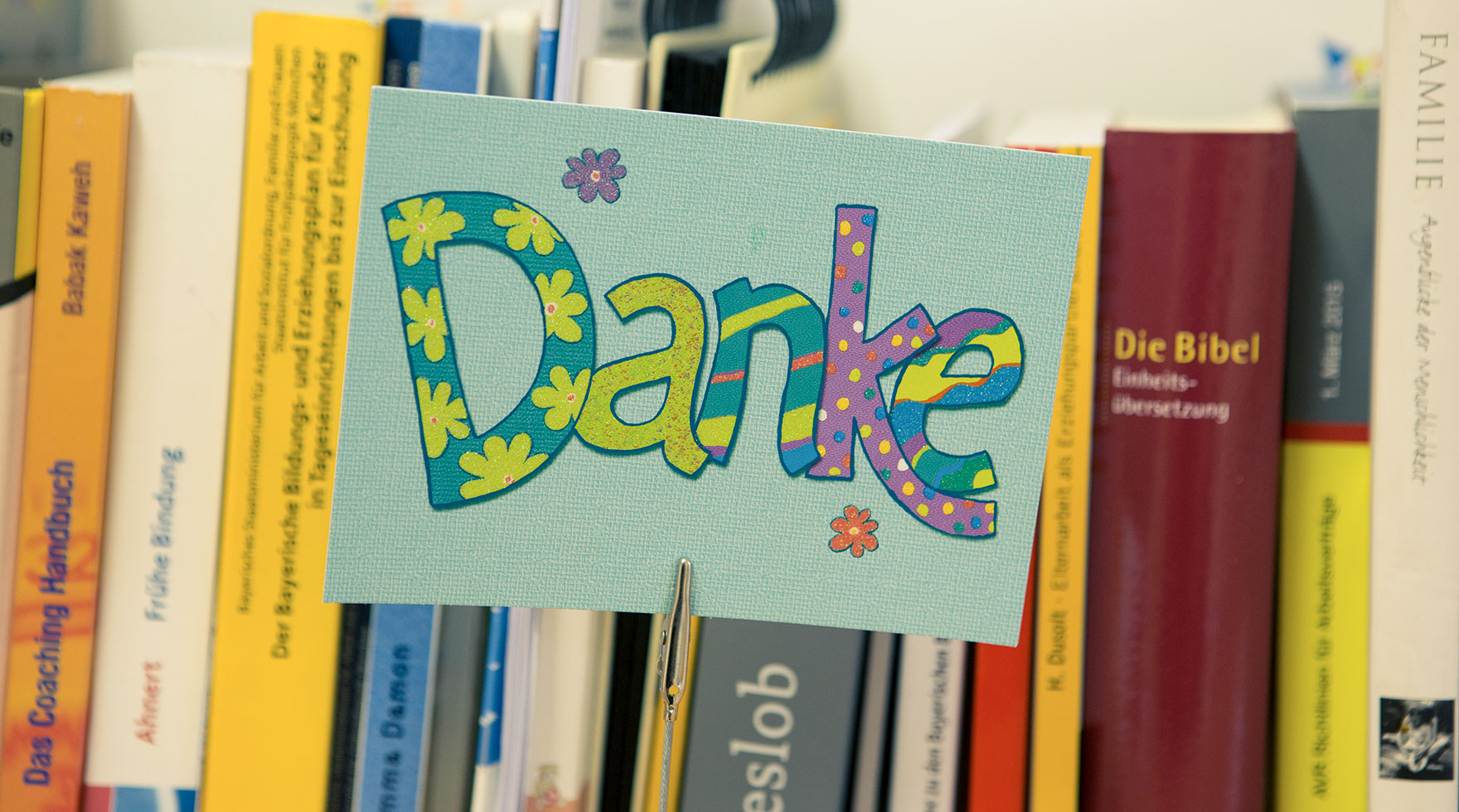
Main content
“Learn the German language!”
Eden Iyob is head of the Butterfly Tree (Schmetterlingsbaum) nursery in Munich, run by Caritas, and also works as a coach for – amongst other people – volunteers and social workers. She is a lively networker who fled to Bavaria herself 30 years ago from Eritrea.
The interview was conducted in 2016.
Eden Iyob is a jack of all trades – in the positive sense of the phrase. She was eleven years old and illiterate when she fled Eritrea in 1984. She grew up in Wangen in the Allgäu with her mother and two siblings. After successfully gaining her school-leaving certificate, she went on to train as a nursery nurse in Lindau. Since 1996 she has been working with unaccompanied child refugees and she took over as head of the Butterfly Tree nursery in Munich in 2005. Eden Iyob is also a trainer in the field of intercultural educational sciences and works freelance as a systematic coach for other volunteers and social workers, amongst other groups. Furthermore, she is a speaker, networker, supervisor of an East African cooking course and mother of a 14-year-old son and a 5-year-old daughter. On occasion, she also acts as an interpreter in her native language of Tigrinya. She is a volunteer and someone who moves between cultures.
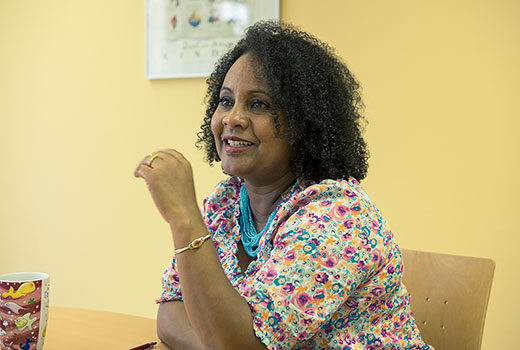
- Ms Iyob, what was your experience of integration in Bavaria 30 years ago?
-
I remember the time well. I learnt the German language relatively quickly and integration is relatively easy as a child. I had a lot of support from two teachers but struggled with maths most of all. A volunteer helped me every afternoon with my homework. We are still in touch with each other today.
- Can you remember any discrimination?
-
I was not consciously aware of any. But of course we stood out as black people in the Allgäu. I could never blend in, but then I never wanted to. In my experience, the Bavarian people always have been and are very generous to others.
- You fled Eritrea as an eleven-year-old with just your younger brother. Were you very afraid?
-
I was born and grew up in a time of war. Fleeing my homeland did not scare me. We were in fact leaving the place where we lived in constant fear. My mother had already fled seven years before and she gave birth to my youngest brother on the journey. She wanted her two oldest children to follow afterwards but at first it was very difficult because she did not know her rights and wasn’t familiar with the laws. My brother and I grew up with our grandparents. I still remember how my grandfather brought us to the Sudanese border and then sent us on from there with a group of adult refugees. We spent five months in a tent in a refugee camp in Sudan. Our journey took a whole year in total. It then took another twelve years in Germany until my residence status was secure.
- Are you bringing your children up bilingual?
-
Yes, they were born in Bavaria and speak German and Tigrinya. The focus is, however, clearly on German. And of course they learn English and French at school. My children are growing up in both cultures and that is important to me. Sometimes it really is a balancing act.
- When it comes to integration, what is the key?
-
Integration is about giving and taking – and both sides must be prepared to do this. Because of my own life story, integration of refugees is very dear to my heart. Wherever I can make my own little contribution, then I will. I see myself as a bridge between cultures.
- What can every individual do to make a contribution to integration?
-
Without the help and support of local people, integration will never be a success. For this reason: make contact with people! They have a name and a face. Let’s get to know them.
- What advice can you give refugees?
-
Learn the German language! Language is the key to integration and only through the language can you make contact with local people. For young refugees, the top priority is education.
“Integration is about giving and taking – and both sides must be prepared to do this.”
